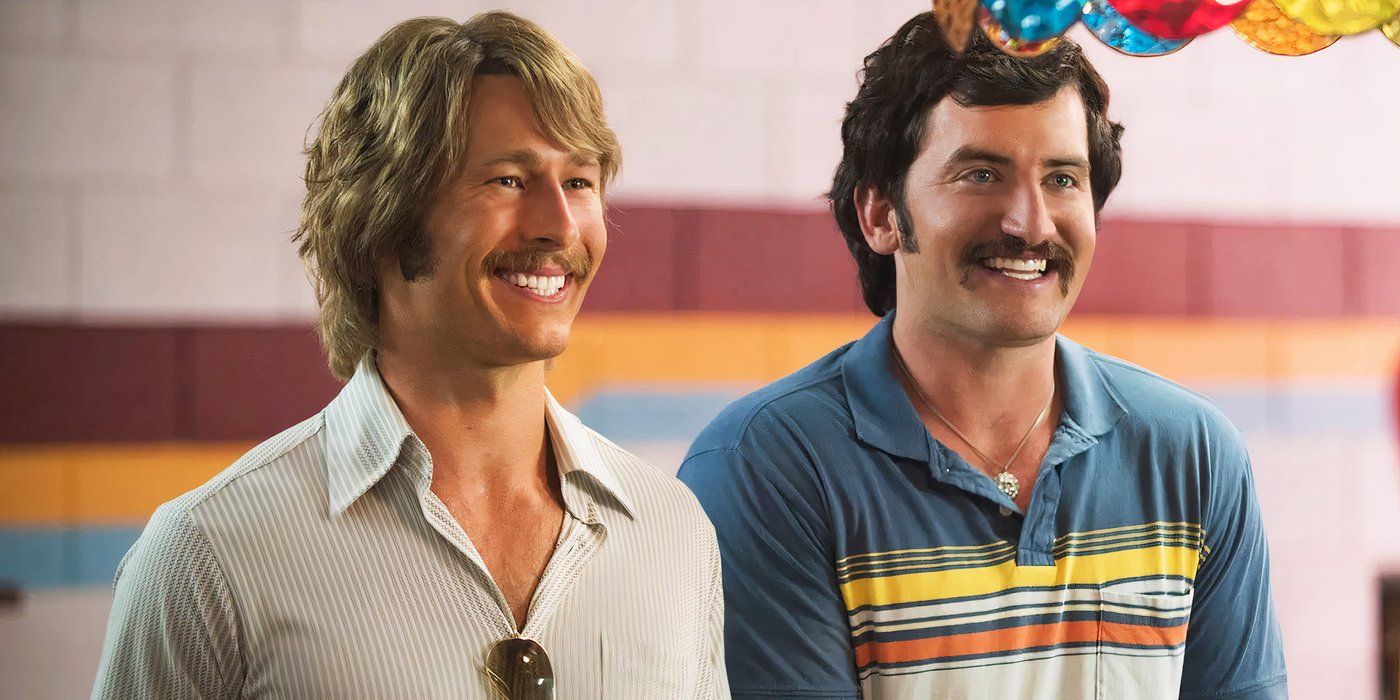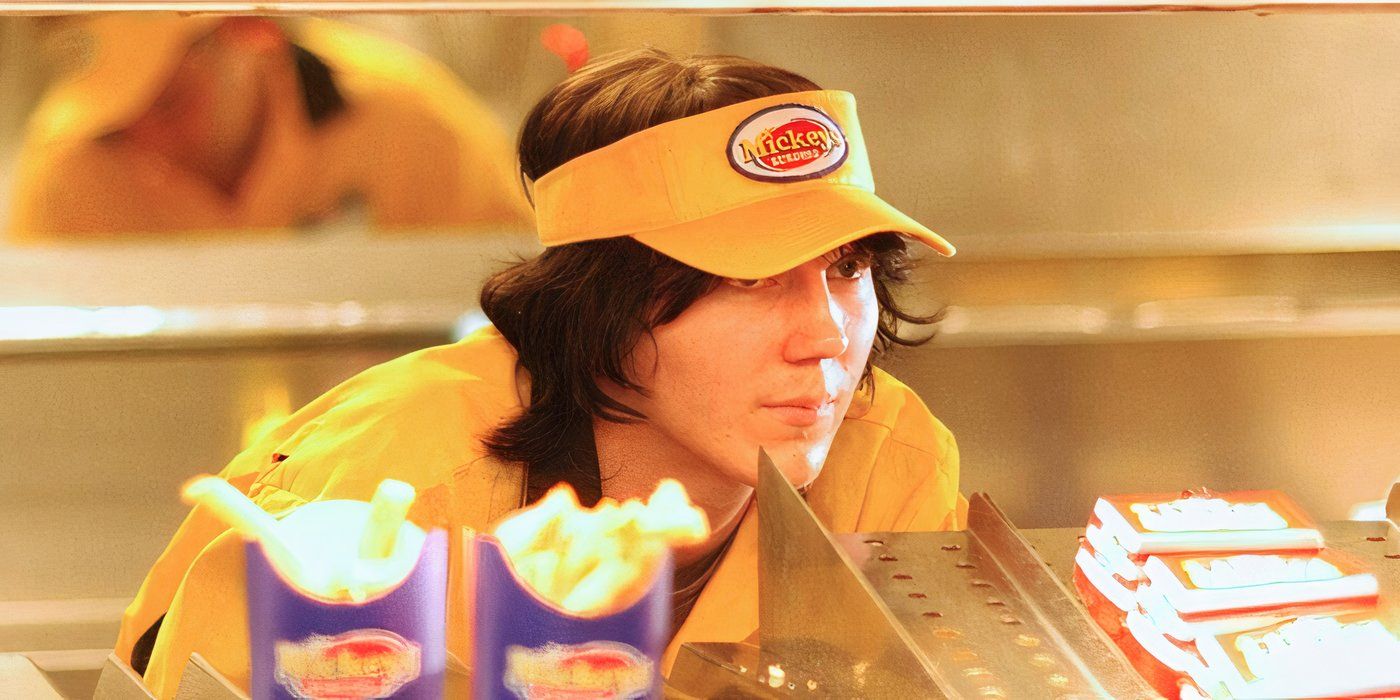The Big Picture
- Richard Linklater’s
Fast Food Nation
delves into systemic corruption in American fast food restaurants. -
Fast Food Nation
explores capitalism’s inherent cruelty and the oppression of workers. - While not offering solutions, the film shows the challenges of breaking free from oppressive systems.
The popularity of American independent cinema that emerged in the 1990s is largely credited to the success of Richard Linklater, a unique writer/director with an aptitude for capturing realistic moments of everyday life. Linklater’s early films Slacker and Dazed and Confused were heralded for their non-linear, “slice of life” structure; he showed more interest in conveying ideas about youthful bliss and small town life than he did in narrative cohesion. While Linklater’s style didn’t change, his approach certainly matured, as he began tackling more serious issues in the later half of his career. Linklater’s 2006 dramedy Fast Food Nation addressed the systemic corruption and abuse involved in America’s fast food restaurants.
Fast Food Nation was inspired by Eric Schlosser’s nonfiction novel of the same name, which itself had drawn comparisons to Upton Sinclair‘s 1906 classic The Jungle, a deep dive into the nation’s meatpacking plants. While the subject of America’s restaurant business had been tackled in such documentaries as Food Inc. and Super Size Me, Linklater had the challenge of putting a human face on the disgusting practices. Fast Food Nation isn’t just a condemnation of the fast food industry, but a deep dive into the inherent cruelty of capitalism and competition.
What Is ‘Fast Food Nation’ About?
Like many of Linklater’s films, Fast Food Nation has a sprawling ensemble and features loosely connected narrative threads that relate to a central idea. While his previous work was largely focused on just one segment of the socioeconomic food chain, Linklater analyzes multiple levels of infrastructure in Fast Food Nation. The story begins with the marketing director Don Anderson (Greg Kinnear), who begins to investigate the meatpacking plants owned by the fast food chain Mickey’s hamburgers. While Don has pride in the products he serves, a meeting with the executive vice president Harry Rydell (Bruce Willis) forces him to reconsider where the meat is actually coming from. Linklater examines the lurking issue that is hiding in plain sight; Don begins to understand that the contamination of food products isn’t as much a conspiracy as it is an open secret.
Don’s crisis of confidence adds contextual information about the ignorance of corporations, but Linklater shows how the incompetent leadership of fast food chains has a dehumanizing effect on young people. Although the young high school student Amber (Ashley Johnson) is initially just happy to find a job, she begins to realize that she and her co-workers Brian (Paul Dano) and Andrew (Aaron Himelstein) are being taken advantage of by Mickey’s low wages. Linklater perfectly shows how this hostile treatment inspires radicalism within the characters. Brian and Andrew grow so dispirited with their work that they consider staging a robbery. While the film does not necessarily condone their actions, it empathizes with the situation that inspired their animosity.

Related
Glen Powell Became the Perfect Screen Presence for Richard Linklater in This Sports Comedy
One of 2024’s brightest stars broke out in this overlooked coming-of-age comedy.
‘Fast Food Nation’ Is Richard Linklater’s Most Political Movie
While he’s received acclaim for shedding light on a “Middle American” perspective that is often ignored in mainstream Hollywood fare, Linklater uses Fast Food Nation to explore the growing discontent among America’s working class. Amber already has reason enough to detest Mickey’s, but her opinions are lionized by her uncle Pete (Ethan Hawke), who encourages her to leave her hometown and take action for the causes she believes in. Hawke has given many great performances in Linklater’s films, but his Fast Food Nation role is among the most unique; he had to capture the anxieties of an entire generation that felt that they had left nothing behind for their children. Although Hawke’s inherent charisma gives the moment some affable charm, his words of guidance have a profound effect on both Amber and the audience at large.
Linklater also uses the fast food business to explore the immigration crisis, as a segment of the story focuses on the Mexican immigrants Coco (Ana Claudia Talancón) and Sylvia (Catalina Sandino Moreno) as they attempt to find work in Colorado. Although they are initially thankful to find any work in America, the sisters are disgusted by the brutal process of slaughtering cows and processing them into food; they and their fellow workers are simply treated as links within a conveyor belt. It’s a traumatizing window into the perils of the immigrant experience, and is made even more disturbing due to a terrifying performance by Bobby Cannavale as Coco’s abusive superior, Mike.
Although raising these issues is something a documentary could do, Linklater does not offer a solution to the problem. Each of the characters’ attempts to break out of the system that shackles them ends on a somewhat tragic note; Don accepts the failings of his company, Amber fails in her effort to free animals from entrapment, and Sylvia ends up in a position even more miserable than the one she was in before. The dark ending shows how challenging it is to change a system that has become instrumental to the American economy.
How Does ‘Fast Food Nation’ Relate to Linklater’s Other Films?
Certainly the darkest film of his career, Fast Food Nation continues the exploration of the human condition that is quintessential within all of Linklater’s works. While a film like School of Rock used music as a centerpiece to understanding passion and maturation, Fast Food Nation suggests that the country’s acceptance of the gross mishandling of food safety precautions speaks to its collective disillusionment. Linklater subverts images of “Americana” by showing the nasty, vindictive personalities that hide behind endearing brand images. It’s a window into the state that the country was in in 2006 that serves as a perfect time capsule into the era.
Fast Food Nation signified a notable shift in Linklater’s filmography, as he steadily began working on darker projects in the subsequent decade. While he still had room for a rip-roaring college sports hang out movie like Everybody Wants Some!!, the black comedy Bernie and the gripping military drama Last Flag Flying revealed that he had more serious intentions. Fast Food Nation may not be an easy film to watch, but it marked a significant step forward in the career of one of the greatest American filmmakers.
Fast Food Nation is available to rent on Prime Video in the U.S.
Rent on Prime Video





